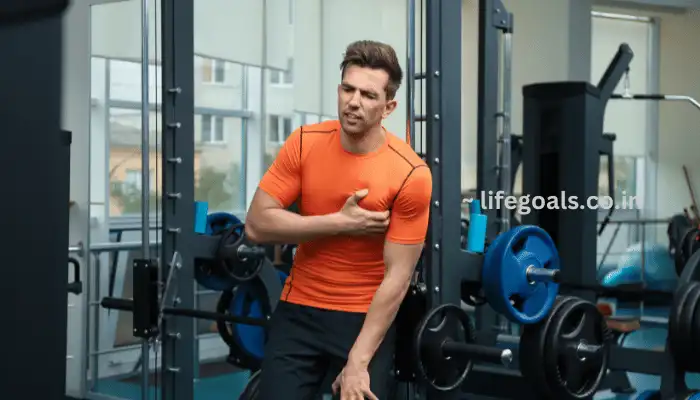Can Workouts Put Your Heart At Risk? Here’s What Doctors Want You To Know
While the world stresses about hypo-tension, we should not lose sight of a larger number of youth affected across India and globally as well. Senior consultant Medicine, Sir Ganga Ram Hospital, Dr. Pooja Khosla shares, “The burden of hypertension among Indian youth is very high as it affects 30 percent of adults. Dr. Rituja Ugalmugle, consultant internal medicine at Wokhardt Hospitals Mumbai Central also said: “We are coming across young individuals in their early 20s or even those can be diagnosed with hypertension moreover skin is another organ which reflects the dysfunction of other organs and thereby should not be ignored by anyone.”
There are several factors that contribute to the growing prevalence of hypertension in young adults:
Sedentary Lifestyle: With a decreased physical activity.
Diet: High intake of salt and sugar through processed foods.
Stress: Professional, academic urbanism and financial stress.
Increased Smoking and Drug Use: More cigarettes, e-cigarettes & drug abuse
Parents or siblings with hypertension that began before age 60 prior to ago
Heart-Health Habits That Matter

For hypertension, and for your overall heart health as well, follow these crucial heart-health habits:
- Keep it down (your weight).
- Consume a balanced diet with lots of fruits, vegetables, and whole grain.
- Exercise on a regular basis.
- Stress Management (Meditation, Relaxation)
- Refrain from smoking and minimize alcohol intake.
- Undergo regular health check-ups and keep track of blood pressure.
More Deaths: As a shock value, many more people are dying suddenly during exercise — and this drives home that you can die while working out at the gym. It is time to look at the risks of intense physical activity. Dr. Pooja advises, It is better to consult your doctor before doing heavyweight exercise workouts!! She recommends that those with multiple co-morbidities should check first with their save boundaries of workouts and exercise duration.
Safe Exercise Practices from Dr. Rituja
Warm-Up and Cool-Down: Always include a warm-up in your workout as it will prepare the heart, and muscles for movement & circulation before activities, also cool-down is essential to keep recovery of these systems.
Hydration: Keep yourself well-hydrated, particularly during exercises.
Do Not Push Yourself: If you are just starting then do not overexert yourself([&] even if it is otherwise too as our body should be given time to adjust).
Symptoms: Warning signs that you should never ignore… chest pain, dizziness, or shortness of breath during any workouts in Toronto. If either of these happen, get medical attention immediately.
Edentulous Progress: Grow up the powerful degrees and perfect your training to conserve and stay away from needless force in front regarding one’s heart.
Rest: Give yourself ample time to rest and recover before heading back into the gym for another round.
Blood Pressure Control: Exercise increases blood pressure, but once done and at rest it should return to normal levels. Check the heart rate and do not exceed that you can have a check on your heart monitor. Some gym regulars may not even be aware of underlying heart issues, such as blocked arteries-a leading cause of sudden cardiac arrest.
Control Diabetes: Young onset diabetes raises the risk for heart disease. Engage in regular moderate physical activity and maintain a healthy weight.
Know Your Limits: Overestimating your body’s capabilities during vigorous exercises is a No-No! Work on endurance and power at a slow pace.
Work out only if you are healthy: Exercise under the “above neck rule”–fever, cough with phlegm and/or chest congestion, loose motions should be your cue to avoid working out. If you have a straight-up stuffy nose, light exercise is alright.
Conclusion
Exercise is a crucial cornerstone of living a heart-healthy lifestyle, but it’s important to exercise smartly in light of potential risks for the heart. Safe exercise practices and continuing heart-healthy habits will allow youth to optimize the benefit of both physical activity without unnecessarily compromising cardiovascular health.
Reading the FAQs
Q: Which factors contribute to hypertension in young adults?
A: Various causes of hypertension include a sedentary lifestyle, high-indulges processed food habits, stress smoking consumption uses drugs and family history as the reason.
Q: What is the safest way to start exercising?
A: Consult with your doctor before beginning any vigorous exercise, warm-up, and cool-down sessions will offer further protection, keep well hydrated while training but if you feel unwell or dizzy it is best to halt the session until symptoms improve. Increase only gradually how hard those workouts are conducted and ensure that rest periods for recovery must also be included in time spent exercising.
Q: Can we understand why it is so significant to monitor blood pressure during workouts?
A: Blood pressure may go up as you train, but should come back to normal after WARNING SIGNS Regular monitoring helps to prevent it from becoming too high and causing problems with your heart.
Q: What should I do if I experience symptoms like chest pain or dizziness during a workout?
A: Chest pain, dizziness, or near fainting are all symptoms you should seek advice for – stop exercising in these cases. If you show signs such as chest pain, dizziness or shortness of breath while exercising get medical help right away.
Q: Are there general exercise recommendations for training in a sick state?
A: Do not exercise if you have a fever, cough with phlegm, chest congestion, or loose motion. Some light movement is okay if your nose is blocked reliable.



